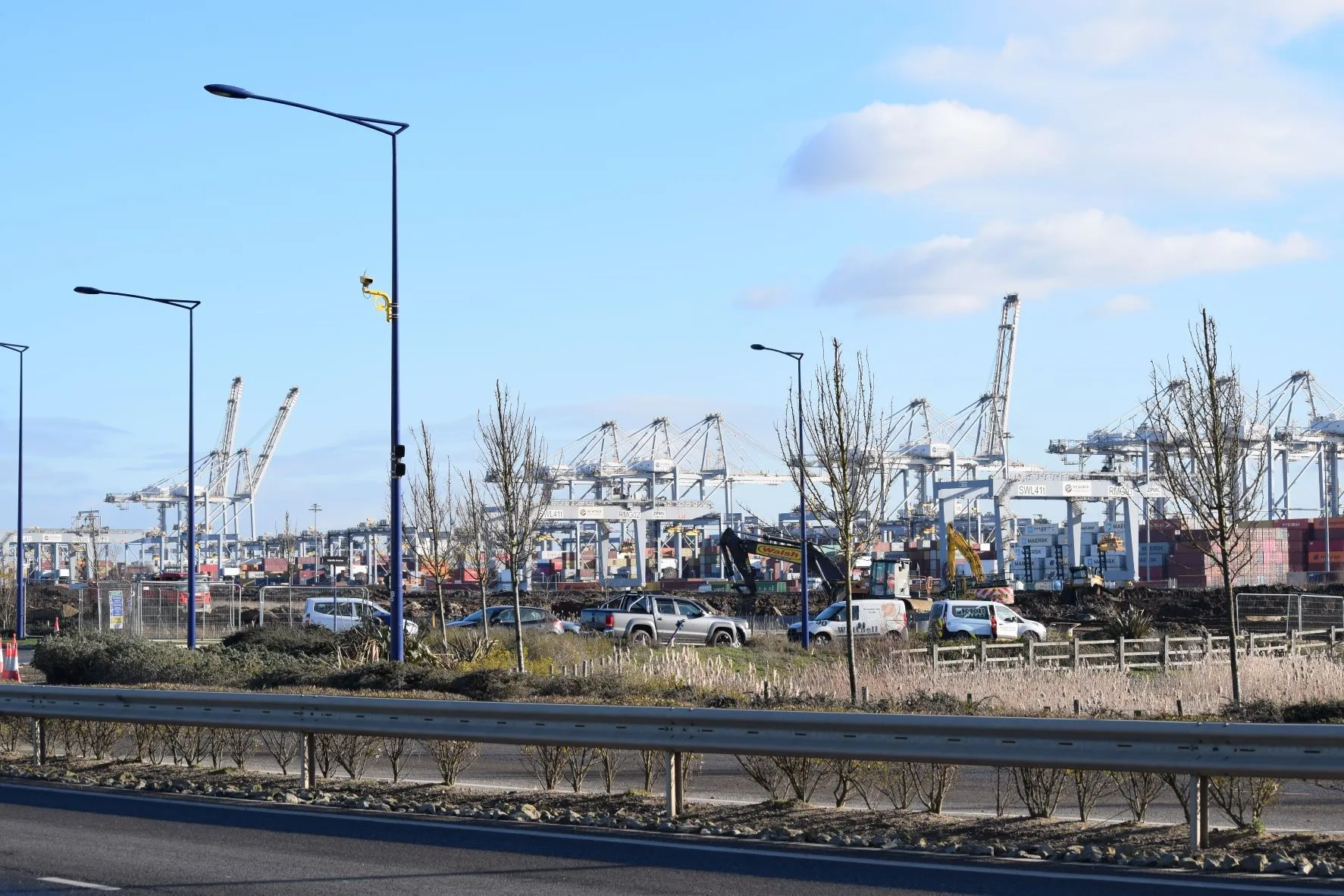
Jenoptik has installed an average speed camera enforcement scheme to make roads safer at a major logistics park near London.
The company says it is the first time an average speed scheme has been installed on private roads in the UK.
Offences at the DP World complex at the London Gateway port in south Essex will be enforced by Essex Police as they would on any other road, with the same penalties.
Under the Road Traffic Act 1984, the private network is still subject to all traffic laws because roads are accessible to the public.
Jenoptik says there had been "a number of incidents on its roads due to speeding, both by members of the public using the roads as a racetrack, and staff at businesses based there not adhering to the limits".
As a result, 16 Jenoptik SPECS3 Vector cameras have been installed to cover three main routes across the site - the 40 mph Port Access Road, the 30mph Ocean Boulevard and Atlantic Avenue.
They have been mounted on existing street lighting columns, thus minimising infrastructure costs. The enforced limits have been applied with Traffic Regulation Orders and signing checked to ensure they are legally enforceable.
The ANPR technology monitors vehicles as they pass fixed points on the road, then calculate the time taken compared with how long it should take if the vehicle was driving at the speed limit.
Jenoptik says research shows fatal and serious collisions are reduced by 50% following installation of the technology.
Account manager Timo Thornton said the time from order to completion was just 12 weeks.










